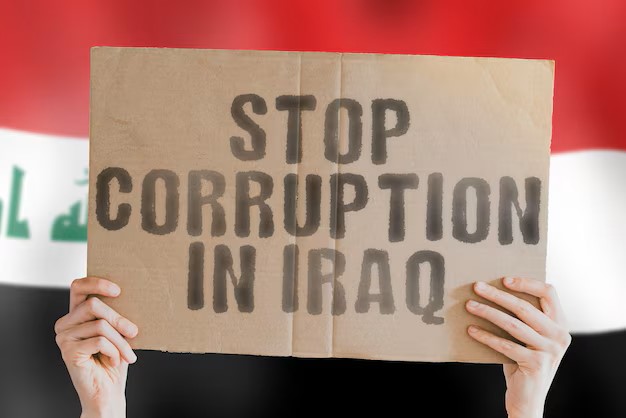Iraq’s streets are currently alive with the bustle of religious processions marking Arbaeen, complete with tents, tea and coffee stalls, and political slogans and images of party candidates. Yet amidst these religious observances, the everyday Iraqi citizen struggles, burdened by the disruptions these events cause. Streets in Baghdad, already notorious for traffic congestion, are further closed to accommodate the rituals.
One individual shared a recent experience while traveling by bus through the Al-Qanat area. Upon reaching a heavy traffic jam, the driver explained that the bridge had been closed due to the ongoing pilgrimage. After half an hour of waiting, an elderly woman, frustrated, cried out, “Damn the corrupt government!” In response, a senior coffee vendor walking alongside the bus angrily retorted, “We deserve everything that is happening to us.” When asked why, he replied, “Because for more than eighteen years, we have failed to rid our country of corruption and expel all the black and white turbans that brought destruction, looting, and manipulation in the name of religion.”
This brief exchange reflects the deep frustration felt by many Iraqis toward their political leaders and institutions. A chorus of voices soon joined in, condemning the political parties, sectarian militias, and the corrupt government, unable to even organize basic traffic, let alone run the country effectively. This scene, though fleeting, offers a snapshot of Iraq’s dire situation: a nation caught in a cycle of inefficiency and frustration.
But perhaps the most troubling question arises: how did Iraq’s parliament come to be filled with the very individuals who are now the focus of such ire? According to Iraqi citizens, the process of running for office often requires candidates to pay a hefty sum of around $250,000 just to be considered. Once in office, they recoup these expenses—and more—through bribes and corruption. Each member of parliament is allocated election expenses of up to one billion Iraqi dinars, or roughly $700,000, which is multiplied by the 328 parliamentary seats, amounting to about $230 million.
This is just the beginning. The true cost of corruption goes far beyond this figure, including shady deals like the $135 million contract with a Korean company for election equipment that was actually just a small maintenance company, not a manufacturer. The costs here were inflated with bribes, travel expenses, and huge profits hidden under the guise of legitimate transactions. These practices are further exemplified by the massive issue of fake voter cards, which continue to undermine the integrity of the election process.
Meanwhile, political appointments and promotions have become a joke. In Iraq’s twisted political world, it’s not uncommon for a lowly doorman to suddenly be appointed as the head of the Electoral Commission. The cancellation of polling stations during the 2021 elections—22 stations in Jordan and 16 in Turkey—raises further suspicions about how deeply the electoral process has been manipulated.
Despite the numerous revelations, the political elite continue to thrive while the country spirals further into dysfunction. The apparent preparations for 2021 include the creation of a network with a track record of election fraud, allegedly under the supervision of the Iranian Intelligence Agency and led by Miqdad Sherefi. It begs the question: will Sherefi be the final embodiment of the corruption that has plagued Iraq for decades?
Ultimately, the Iraqi people, from the young to the old, recognize the futility of giving the same corrupt individuals another chance. The constant rotation of faces in power is merely a farcical play, one that mocks the suffering of the people. The chubby, well-fed politicians laugh in their opulence while the eyes of Iraq’s citizens, weathered by years of hardship, continue to weep.
